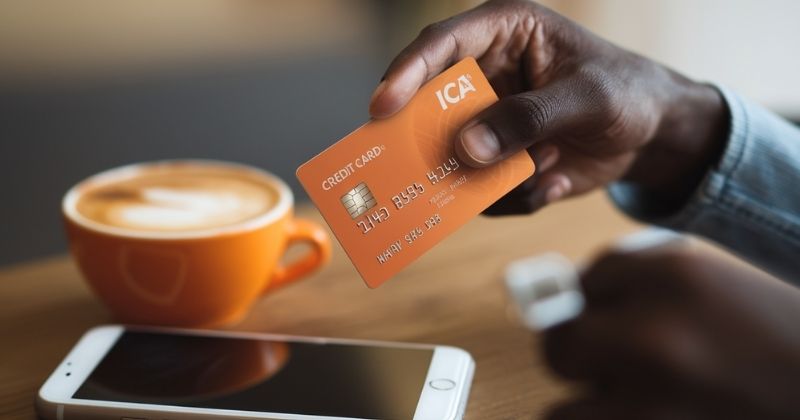
In certain situations, you might need additional funds to cover an unexpected emergency, finance a significant expense, or manage finances for a period. In these cases, having access to credit can be a valuable financial resource. However, it’s crucial to use this credit wisely and responsibly to manage your finances effectively and take full advantage of what it offers. Both a credit card and a personal loan can be useful options for addressing your financial needs, but they serve different purposes, and the choice between them should be based on your specific circumstances.
Key Takeaways
- Credit Cards offer flexible, revolving credit that is suitable for daily expenses. You can avoid interest charges if the balance is paid off in full each month.
- Personal Loans provide a lump sum with fixed monthly repayments, making them ideal for larger purchases or long-term financial needs. They often come with lower interest rates compared to credit cards.
- Choosing between a credit card and a personal loan depends on your needs: credit cards are better for smaller, ongoing expenses, while personal loans are more appropriate for larger, one-off expenditures.
About Arcadia Finance
Get a stress-free loan with Arcadia Finance. Choose from 19 reliable, NCR-compliant lenders, with no application fees and a process tailored to your financial goals.
Credit Cards
Applying for a credit card gives you immediate access to funds up to a set limit. You can either repay the full outstanding balance or make the minimum monthly payment, which allows you to use the available credit again. This revolving credit offers flexibility, letting you access a specific amount as needed. Some key benefits include:
- A 55-day interest-free period to settle the amount owed.
- Instant access to funds, ideal for daily expenses.
- The ability to shop safely and conveniently, both in-store and online, without needing cash.
- An opportunity to build and maintain a positive credit score.
- Additional travel, lifestyle, and insurance benefits.
However, it’s essential to use a credit card responsibly. Without careful management, it’s easy to overspend, so it’s advisable to use the card only for necessary expenses. This risk is not unique to credit cards; even with a personal loan, receiving a lump sum can lead to impulsive spending if not managed properly. The key is to handle these financial tools with caution and a clear plan to avoid potential financial strain.

Pros
- Provides a continuous credit line that you can access as needed, offering flexibility in borrowing money when required.
- Interest is charged only on the specific amount you withdraw, not the entire credit limit, which can help manage costs more effectively.
- If you repay the full amount owed by the due date, you can potentially avoid paying interest, making it a cost-effective borrowing option.
- Some credit lines offer perks such as introductory 0% interest rates or reward programmes that provide cash-back on certain purchases.
Cons
- Interest rates for credit cards are generally higher than those for traditional personal loans, which can make it a more expensive option over time.
- If you cannot keep your balances under control, interest charges and fees can accumulate quickly, potentially leading to a difficult cycle of debt.
- The ease of access to credit can encourage overspending on non-essential items, leading to unnecessary debt.
- Missing payments or carrying high balances can negatively affect your credit score, making future borrowing more difficult and expensive.
Credit Card Repayments
Credit cards require you to make a specified minimum payment each month. While paying just the minimum amount is acceptable, it is advisable to contribute more whenever possible. Doing so helps reduce the overall duration of your debt and minimises the interest charges that accumulate over time.
For convenience, you can set up a direct debit order to automatically cover the minimum repayment each month. This amount is deducted from your bank account without the need for manual action. Alternatively, you can choose to manually pay off the full outstanding balance each month, which is the most effective way to avoid accumulating unnecessary interest.
Personal Loans
When applying for a personal loan, you receive a fixed sum of money that must be repaid through regular instalments over an agreed period with the lender. This amount is provided as a one-time payment, and the interest rate depends on your credit rating and the terms offered by the financial institution. Some key benefits of personal loans include:
- Suitable for covering larger expenses and long-term financial needs.
- Fixed monthly instalments make budgeting and financial planning easier.
- You can choose a repayment period, which can be as long as 84 months, depending on the loan agreement.
- A strong credit rating can help you secure a more favourable interest rate, reducing the overall cost of the loan.
- Rewards can be used to assist with covering monthly repayments, offering additional financial flexibility.
Similar to a credit card, it is important to use a personal loan for its intended purpose. Whether to use a personal loan or a credit card depends on your specific needs and circumstances. Each form of credit serves different purposes, with its own advantages and disadvantages. When used wisely, both can be effective in managing financial challenges.
Pros
- Can be used for substantial expenses or investments.
- Generally offers a lower interest rate compared to most credit cards, making repayment more manageable.
- Fixed payments are predictable, which aids in budgeting over the life of the loan.
Cons
- Often includes various fees, such as origination or administration fees, which can increase the overall cost of borrowing.
- Provides a single lump sum, so once this amount is used up, additional credit is not available without applying for a new loan.
- Unlike many credit cards, personal loans typically do not come with rewards programmes, such as cashback or points, which could offer additional benefits.
Personal Loan Repayments
With personal loans, paying interest is a given, unlike credit cards where interest can be avoided if the full balance is repaid each month. Personal loans come with fixed monthly repayments over a specified period, known as the ‘term.’ It’s important to remember that a longer repayment term will result in more total interest paid over the life of the loan.
For example, borrowing R10 000 at an interest rate of 7% over three years results in a total interest payment of R1 100. If you extend the repayment period to 10 years, the interest rises to R3 900.
When you take out a loan, the lender provides you with the monthly repayment amount. It’s crucial to ensure you can consistently meet these payments throughout the entire term. Missing a payment can lead to penalty fees and negatively affect your credit report.
Although repaying a loan early is possible, it may incur an early settlement fee. This typically applies to loans over R250 000 or home loans, with the fee amounting to a maximum of three months’ interest.
When is it Preferable to Choose One Option Over the Other?
Generally, a credit card is best for smaller, day-to-day purchases and allows for quicker repayment of smaller amounts. It offers a more flexible borrowing option, especially if you’re uncertain about the exact amount you need to borrow or require some flexibility with your repayment schedule.
If you’re planning a large purchase, financing a one-off expense, consolidating debt, or need a longer repayment period, a personal loan is more appropriate. Personal loans tend to encourage financial discipline, as unlike credit cards, you cannot re-borrow the funds once they’ve been repaid. However, if you opt for a revolving loan, this feature is available.
Taking the time to assess which option best suits your needs and which payment terms are more favourable can help you manage your finances more effectively and handle your debt responsibly. This approach can lead to long-term savings and assist you in achieving your financial goals.
Considering consolidating your debts to ease financial pressure? A personal loan could help you manage multiple debts efficiently. Is debt consolidation a good idea? Find out how this financial move could work for you.
How to Apply for a Loan with Arcadia Finance
Applying for a loan with Arcadia Finance is simple and easy. Just head to our website to begin your application, and our friendly, knowledgeable team will be there to support you every step of the way. We’ll ask for a few key details, like your income, expenses, loan amount, and preferred repayment terms. Once submitted, we’ll review your application quickly and get back to you with a decision in no time.
Loan Alternatives
Choosing a loan option goes beyond just credit cards and personal loans. Here are a few other alternatives suited to different needs:
Home Equity Loan
This allows you to borrow against the equity you’ve built up in your property. It often comes with lower interest rates. However, if you miss payments, there is a risk of losing your home.
Cash-Out Refinance
This involves refinancing your existing mortgage for a higher amount, allowing you to take the additional funds as cash. While the process can be time-consuming, it can be beneficial for obtaining extra funds and securing a lower mortgage rate.
Home Equity Line of Credit (HELOC)
Similar to a home equity loan, a HELOC provides access to a line of credit rather than a lump sum. During the initial period, you can draw on the credit line as needed, and interest is charged only on the funds you use. After this period, you enter a repayment phase.
When applying for a loan, your creditworthiness plays a crucial role. Find out exactly what lenders look for when assessing your creditworthiness and increase your chances of loan approval.
Conclusion
When choosing between a credit card and a personal loan, it’s important to evaluate your financial situation and the purpose of the credit. Credit cards offer flexibility for daily expenses and smaller purchases, while personal loans provide a structured way to finance larger, one-time needs with fixed repayments. Each option has its own advantages and potential drawbacks, so understanding these differences can help you manage your finances more effectively. Ultimately, selecting the right option can support your financial goals and encourage responsible borrowing.
Frequently Asked Questions
It depends on the size and urgency of the expense. For smaller, short-term expenses, a credit card might be more suitable due to its flexible repayment options. However, if the expense is larger and requires a longer repayment period, a personal loan with fixed monthly payments and potentially lower interest rates would be a more structured option.
Yes, personal loans typically have lower interest rates compared to credit cards, especially if you have a good credit rating. This can make personal loans a more cost-effective choice for larger expenses that require a longer repayment period, as the lower interest rate and structured repayment plan help reduce the overall cost of borrowing.
Yes, if you pay off the full outstanding balance by the due date each month, you can avoid interest charges. Most credit cards offer an interest-free period, usually around 55 days, which allows you to use the card for everyday expenses without accruing interest if repaid promptly.
Missing a personal loan payment can result in penalty fees and may negatively impact your credit rating. It’s crucial to ensure you can meet the fixed monthly repayments for the entire term of the loan. Some lenders may offer an early settlement option, but this could come with additional fees.
No, personal loans are generally designed for one-off, larger purchases or expenses, as they provide a fixed sum that must be repaid over a set period. For ongoing or smaller daily expenses, a credit card would be more appropriate due to its revolving credit nature.





